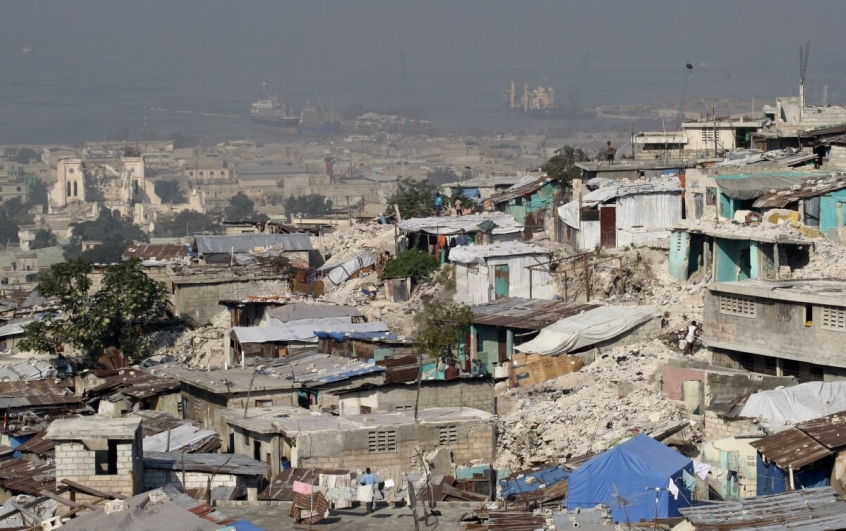The international aid sector has 'collectively failed' to confront the scandal of sexual exploitation and abuse, according to UK parliamentarians.
House of Commons' International Development Committee today published a report saying the delivery of aid to people and communities in crisis has been 'subverted by sexual predators who exploit weakened systems of governance'.

The report says 'so much more' could have been done to tackle the 'open secret' of abusers in the sector, saying: 'outrage is appropriate but surprise is not'.
It says sexual exploitation and abuse is 'endemic' across organisations, countries and institutions and slams the 'collective failure of leadership and engagement from top levels down over many years'.
It also criticises the 'self-delusion' of the aid sector in dealing with and tackling problems.
'The aid sector has been aware of sexual exploitation and abuse by its own personnel for years, but it has collectively failed to fully confront or address the problem. The reactive, patchy and sluggish response of the sector has created an impression of "complacency verging on complicity" and more concern for reputations than victims,' the report says.
It criticises the sector's 'ability to drive transformational change', saying action 'only seems to come when there is a crisis' and that 'even then, it has been superficial'.
Committee chair Stephen Twigg MP said: 'Six months after The Times' expose of abuse in Haiti, the Committee publishes a first look at the troubling issue of sexual exploitation and abuse in the aid sector. Many things have changed in that time with the aid sector, Charity Commission and DFID taking steps to respond to the crisis. One thing has not: the abject failure of the international aid sector to get to grips with this issue, leaving victims at the mercy of those who seek to use power to abuse others. This must be tackled.
'Victims and whistleblowers must not end up feeling penalised for speaking out. Humanitarian organisations and the UN cannot continue a "culture of denial" when confronted with allegations of SEA [sexual exploitation and abuse]. The Committee is deeply concerned that previous attempts have amounted to limited action in order to quell media clamour with no lasting impact or redress.'
The report calls for beneficiaries of aid to be aware of their rights, for reports of abuse to be acted on 'robustly' and for the screening of staff to be improved.
The report has been welcomed by aid agencies and the UK's charity regulator, the Charity Commission. However, its spokeswoman Michelle Russell said: 'The charity sector must go further than simply box-ticking against their legal duties or improving processes and policies. We are particularly pleased to see the Committee's focus on the responsibility of charity leaders to set an organisational culture that demonstrates zero tolerance for abuse.
'Charities should be judged not just by what they do or achieve, but how they go about it.'
She said charities should 'fully confront these issues with a real commitment to lasting and demonstrable change'.
The UK's network of international development NGOs, Bond, includes major Christian organisations such as World Vision, Christian Aid and Tearfund. Its interim chief executive Judith Brodie said the inquiry had been 'an important step towards addressing sexual exploitation and abuse across the aid and development sector' and that increased public attention to safeguarding had resulted in more people coming forward in recent months.
She said: 'We as NGOs know that "business as usual" is not going to cut it and change is has started and is under way. We need to see increased resourcing in safeguarding, particularly for smaller NGOs, more collaboration across organisations, donors and governments, better transparency, unwavering leadership and measures to ensure whistle-blowers and survivors are at the heart of any solutions. This sadly cannot undo previous shortcomings but it will result in a safer and more secure environment for both beneficiaries and staff.'













